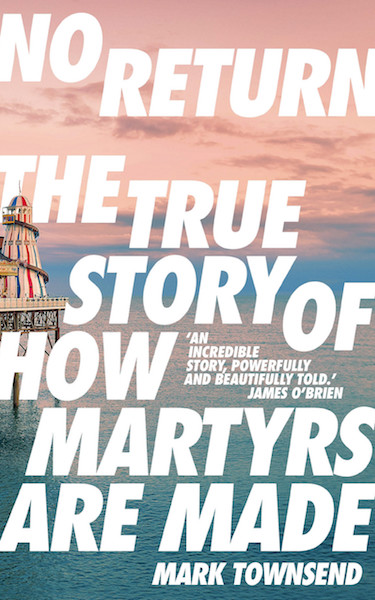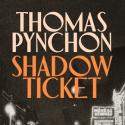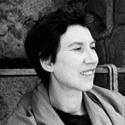When Amer Deghayes departed for Syria in a truck leaving from Birmingham, a worker from a youth arts organisation in Brighton had been trying to get in touch with him. She wanted to inform Amer, an intelligent and creative 18-year-old who had once harboured journalistic ambitions, that his pitch to develop a project about identity in his hometown had been successful. The Heritage Lottery fund had decided to award him £50,000.
The news of his success came too late. On route to another life as a jihadi fighting for Jabhat al-Nusra, an Al Qaeda affiliated rebel group in Syria, Amer Deghayes had left Brighton behind. Amer would survive. Four teenagers who followed him, including two of his younger brothers, would not. In No Return, Mark Townsend tells their story with astounding clarity and precision.
Much has been written about the Deghayes brothers; a Google search of their names will produce a litany of national news stories. They have become infamous – the band of teenagers who congregated at the "Brothers gym” at the mosque became a defining case study on “home grown” radicalisation in the West. Townsend describes how “the Deghayes case revolutionised a new mindset,” acquiring “legendary status” amongst counter-terrorism experts. However, as the circumstances of their deaths became international news, the story of their lives went untold.
 “From the start, chaos followed wherever they went,” writes Townsend as he describes the five boisterous Deghayes brothers, Amer, Abdullah and Abdul, Jaffar and Mohammed. Growing up in the village of Saltdean, Brighton, their early lives were plagued by witnessing the “ongoing violence” from their father towards their mother Einas, a “timid woman whose parental strategy was geared towards giving as much kindness with as little confrontation as possible.” As domestic violence unfolded inside their home, outside they faced a relentless campaign of racist bullying from their peers at school and from far-right groups. Townsend describes an incident during which a crowd gathered outside the Deghayes home while the boys cowered inside as “pebbles pinged against its windows; stones bounced off walls.”
“From the start, chaos followed wherever they went,” writes Townsend as he describes the five boisterous Deghayes brothers, Amer, Abdullah and Abdul, Jaffar and Mohammed. Growing up in the village of Saltdean, Brighton, their early lives were plagued by witnessing the “ongoing violence” from their father towards their mother Einas, a “timid woman whose parental strategy was geared towards giving as much kindness with as little confrontation as possible.” As domestic violence unfolded inside their home, outside they faced a relentless campaign of racist bullying from their peers at school and from far-right groups. Townsend describes an incident during which a crowd gathered outside the Deghayes home while the boys cowered inside as “pebbles pinged against its windows; stones bounced off walls.”
Their family history was also coloured by injustice and violence. Their grandfather Amer Deghayes a prominent lawyer and union organiser was believed to have been murdered in Tripoli by Gaddafi’s security officials. During the war on terror, their uncle Omar Deghayes spent five years in Guantanamo Bay, losing sight in one eye before being released without ever being charged with any crime. His arrest is now believed to have been a case of mistaken identity.
It was this personal and collective suffering, coupled with a deep sense of injustice, that led the brothers (with the exception of Amer) down a criminal path their early teens. Abdullah, who became the family’s most prolific offender, was described in his young offenders risk assessment as “a victim. Intertwined factors had traumatised him, a chain of events that began with his family’s violent past, his grandfather being assassinated, his uncle being held in Guantanamo Bay and his mother being assaulted by his father.” These factors, they stated, created “his rationale for inflicting violence on others.” The route to Syria then was a path away from the past, and from Brighton, a place that the boys felt offered no opportunity for them.
Townsend convincingly illustrates the myriad of factors that drove the teenagers towards jihad. Amer experienced a deeply emotional response to watching Muslim civilians suffering in Syria, saying that “It became clear that doing something was the only option. I didn’t want to be the person just standing on the sideline and watching.” Townsend charts the combination of considerations that influenced his decision to join Jabhat al-Nusra: the sense of horror at watching civilians being killed, the desire to escape that stemmed from being ostracised in Brighton and the rhetoric of online media promoting radical Islamist views. Townsend’s nuanced approach allows us as readers to understand the boys as human beings; to see beyond the two-dimensional versions of them presented in breaking news articles.
Townsend is formidable in his interrogation of the response of the state to the boys growing radicalisation. He exposes the utter incompetence and at times, indefensible negligence of the various authorities, with particular ire reserved for the police whose criminalized the brothers relentlessly. Townsend’s strength is in his research; this is no polemic, the measured narrative voice allows the facts, stark and appalling, to speak for themselves.
No Return is not only a gripping, extraordinary story, but also a journalistic masterpiece. It is an unflinching depiction of the relentless trauma experienced by vulnerable young people in Britain and the failure, absolute and shocking, of the state to protect them. As much about domestic abuse, criminalisation and poverty as radical Islam, this book tells the story of the “young martyrs” who made it onto the battlefield and into the headlines, but remained voiceless and misunderstood.
- No Return: TheTrue Story of How Martyrs Are Made by Mark Townsend (Faber, £12.99)
- Read more book reviews on theartsdesk















Add comment